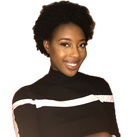I’m a Black woman like Blessing Olusegun. Would anybody care if I went missing?
A misogyny law is a start, but what about misogynoir? We shouldn’t be an afterthought, Black women should feel protected too


Sarah Everard went missing from her home in south London on the evening of 3 March 2021. Just days after her disappearance, her remains were found in Kent. This story shook the nation and has led to serious conversations about the safety of women, with the government set to trial a misogyny law in autumn.
As a woman myself, her story is close to home. Numerous women online have related, recalling the times they felt they were unsafe while walking home. This also came after a UN report found that 97 per cent of women have been sexually assaulted.
Every so often we hear a story about a woman going missing. In February, Stephanie Simpson’s body was found in New Zealand after she was reported missing. The same goes for Grace Millane who also went missing in New Zealand and was found murdered in 2018. But the common theme of these cases is that these women are white.
As the discussions around gender violence continue, a story about a young Black woman has resurfaced. Blessing Olusegun’s body was found last September on Bexhill seafront.
Blessing was a 21-year-old from south London who worked in Sussex caring for elderly patients. Just one week into her placement, she was reported as missing and later found dead in Bexhill-on-Sea.
Her death was “inconclusive” and the postmortem examination found no external or internal injuries on her body. Now people are starting to ask for more answers. A petition has more than 48,000 signatures asking for police to further investigate the case. Her case was not widely known and flew under the radar for many, including some locals in Sussex who have only recently heard about it.
Read more:
Would Blessing’s death have garnered more attention if she was a white woman? I can’t recall seeing a national uproar about a missing Black woman, even though we are overrepresented in sexual assault statistics. As a Black woman, hearing about the news of Sarah Everard made me feel conflicted. I know that I could have easily been Sarah but I don’t know if my case would be treated the same. It’s scary to think if I went missing, the news of my disappearance could vanish as easily as I did. This is why it’s so important to factor in Black women in these discussions.
If Black women are excluded from this discourse, our safety is at risk. How can people be concerned with Black women’s welfare if we aren’t included in gender violence conversations? In addition, Black people have been talking about police brutality for years: did it take white women to go missing for some of these concerns to be heard?
When we usually speak about police brutality, it’s generally concerning Black men. But Black women can also be victims of police brutality. A campaign called “Say Her Name” was created in 2014 to highlight the violence that Black women face from the police. Names such as Breonna Taylor and Sandra Bland are associated with the movement. Just a few months ago, a Black woman was allegedly repeatedly punched during an arrest in Lewisham by the Metropolitan Police. But again, this story failed to become household news.
This is why factoring intersectionality into this discourse adds nuance to the conversation. The term “intersectionality” was coined by American lawyer Kimberle Crenshaw, who found that the law failed to consider that Black women are both Black and female. This is still relevant today as the government has stated that misogyny will now be regarded as a hate crime. But what about misogynoir? How will the government factor in hate crimes towards Black women?
When it comes to safety, Black women have to shout louder to make sure our voices are heard. If we want to create a safer world for women this should include Black women too. And if we’re including Black women in these discussions, the element of race and intersectionality should be mentioned. We shouldn’t be an afterthought: Black women should feel protected too.
Join our commenting forum
Join thought-provoking conversations, follow other Independent readers and see their replies
Comments
Bookmark popover
Removed from bookmarks